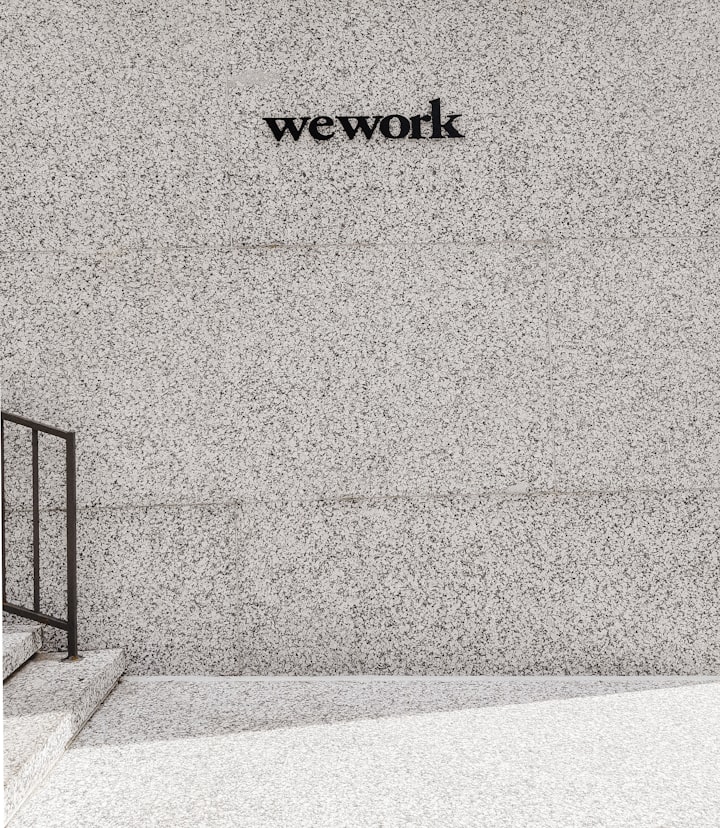From We to Me: Hulu’s WeWork Documentary Tells a Story of How Businesses Use Social Impact for Personal Gain
I recently watched Hulu’s WeWork documentary, and decided to analyze the apparent disconnect between enterprise and social impact. Living in a capitalistic society, it’s not uncommon for people to fall through crafting business models that promote change and foster community.

Think about the words we use to convey thoughts and ideas to others. How intentional are we in what we say? How aligned are our words with our actions and overall values? Adam Neumann had a way with his words, leading him to found one of the largest “socially conscious brands” and co-working space businesses of our day and time.
However, when actions don’t level up to the weight of our words, they become meaningless. Hulu’s latest documentary, WeWork: Or the Making and Breaking of a $47 Billion Unicorn, tells the story of Neumann’s business vision and execution methods in turning his entrepreneurial dream into a reality. It showcases both beauty and dangers of developing and marketing a socially inclusive, innovative, and purpose-driven enterprise.
The documentary gives viewers a glimpse into the mind of Adam Neumann. The Israeli-American believed in the value of community collaboration and balancing work life with fun. It was through his life journey and the ever-changing modern business landscape that inspired him to launch WeWork in 2010. When the first office opened in New York City, Neumann hoped to create one of the largest co-working spaces in the world. Through careful persuasion, negotiation, and a strong vision, he was able to acquire billions of dollars of funding.
Although Neumann denied giving a statement to production, several WeWork employees, lawyers, and other affiliates were interviewed for the documentary. Through their testimonies, their experiences under Neumann’s leadership were far from what he promoted. In the pursuit of financial gain, Neumann and other WeWork executives withheld pertinent financial information to investors and employees. The company spent its dollars on materialistic things, such as private jets to exclusive employees' events and performances, thus leading to major rifts in organizational structure. When the company underwent major employee cuts in an effort to make more room in their budget, many employees were fired, losing their sense of community and overall purpose. It was through Neumann’s false promises where some employees felt that there was no hope for them in finding a place that invests in them and believes in a larger purpose.
These are the evils of living in a capitalistic America.
When we think of social impact, we think of community engagement and collaboration. We think about how to work together to set forth much-needed change that benefits all. We think about education, growth, and strong communal bonds. But when you’re thinking through a capitalistic lens, the voice of the people seems minute to you when you’re on the journey to personal and egoistic gain. This is the business strategy used by Neumann to climb his way to the top of the game, while also promoting inclusion and collaboration for all.
We continue to buy into ideas of inclusion, community, and diversity. However, when your executives' business practices show to be opposite of the missions and values, it causes both internal and external conflict. As a person who is passionate about helping others and believes in authenticity, I have had the most unfortunate connections to businesses who constantly chanted messages of societal change and worked towards supporting their community, but have undermined, gaslighted, and underpaid their employees in the same breath.
Our world isn’t perfect, but that shouldn’t deter us from creating or aligning businesses and enterprises that don’t make us compromise ourselves and our values. Everything comes with sacrifice, but people’s livelihoods and our personal values should not be put on the line to achieve success. This is a hard lesson for us all to learn, and some thoughts and practicing we need to unlearn in order to promote a more fruitful, people-centered approach to business.
--
I am a creative multi-hyphenate with a strong passion for the arts. To check out more of my journey and the different art exhibits and events I go to in real-time, follow me on Instagram at @erparrish_
If you would like to read more of my poetry and prose, as well as see some of my visual photography all in one place follow me on Instagram at @wordsbyep_
About the Creator
Earica (EP) Parrish
Maneuvering through life with purpose and integrity, hoping to leave a meaningful impact on others✨
IG: @erparrish_ ⚡ www.erparrish.com






Comments
There are no comments for this story
Be the first to respond and start the conversation.